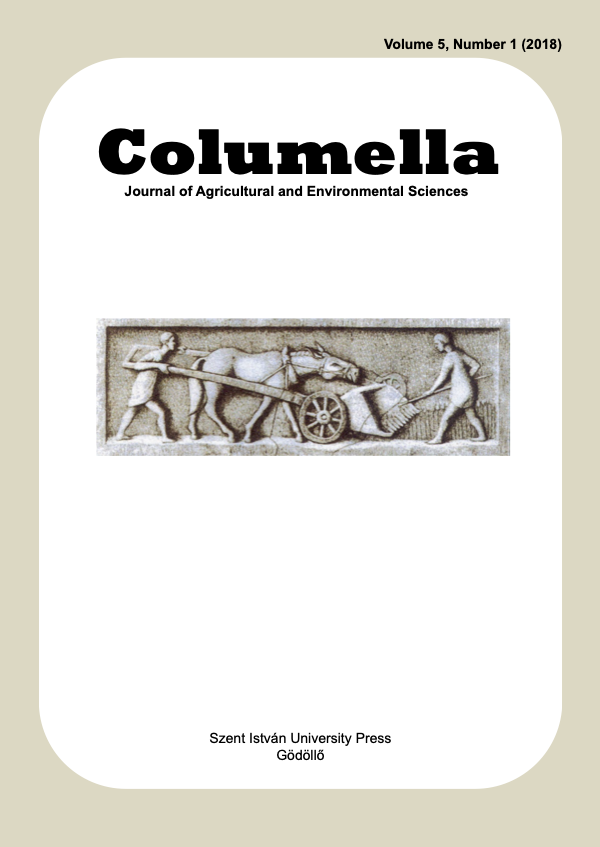Impact of former long-term fertilization on springtail communities in a reforested experimental area
DOI:
https://doi.org/10.18380/SZIE.COLUM.2018.5.1.13Keywords:
black locust, sessile oak, afforestation, soil biotaAbstract
At the beginning of the 1970’s, two fertilization experimental areas were established in Gödöllő. After different long-term fertilization treatments, sessile oak (Quercus petraea) and black locust (Robinia pseudoacacia) plantations were planted in the second half of the 1990’s. In the present research, the effects of former fertilization were studied in these two different forests, with the help of soil Collembola communities as indicators. Soil cores and litter samples were collected from the chosen 30 plots to determine the most important soil parameters and to extract Collembola specimens. According to the results, soil organic carbon (SOC), AL-P2O5 and AL-K2O contents were significantly higher in the two highest-dose treatments of the sessile oak plantation compared to the control. In the black locust plantation, only AL-P2O5 content differed significantly in the second highest-dose treatment when compared to the control. Among the two plantations significant differences can be observed in almost every parameter, except for AL-K2O and nitrogen content. The effects of former fertilizer application are reflected in occasional differences in total Collembola abundance, species richness and diversity, mostly related to the treatments with the highest doses. Due to the relatively young age of the plantations, very few typical forest Collembola species were observed, while species characteristic for open habitats are still predominant. The higher SOC content in the black locust plots is well reflected in the higher Collembola abundance compared to the sessile oak plots. Nevertheless, species richness, diversity and equitability were higher in the plantations of the native sessile oak.
Downloads
Published
Issue
Section
License
Copyright (c) 2018 István Harta, Dániel Winkler, György Füleki

This work is licensed under a Creative Commons Attribution-NonCommercial-NoDerivatives 4.0 International License.






